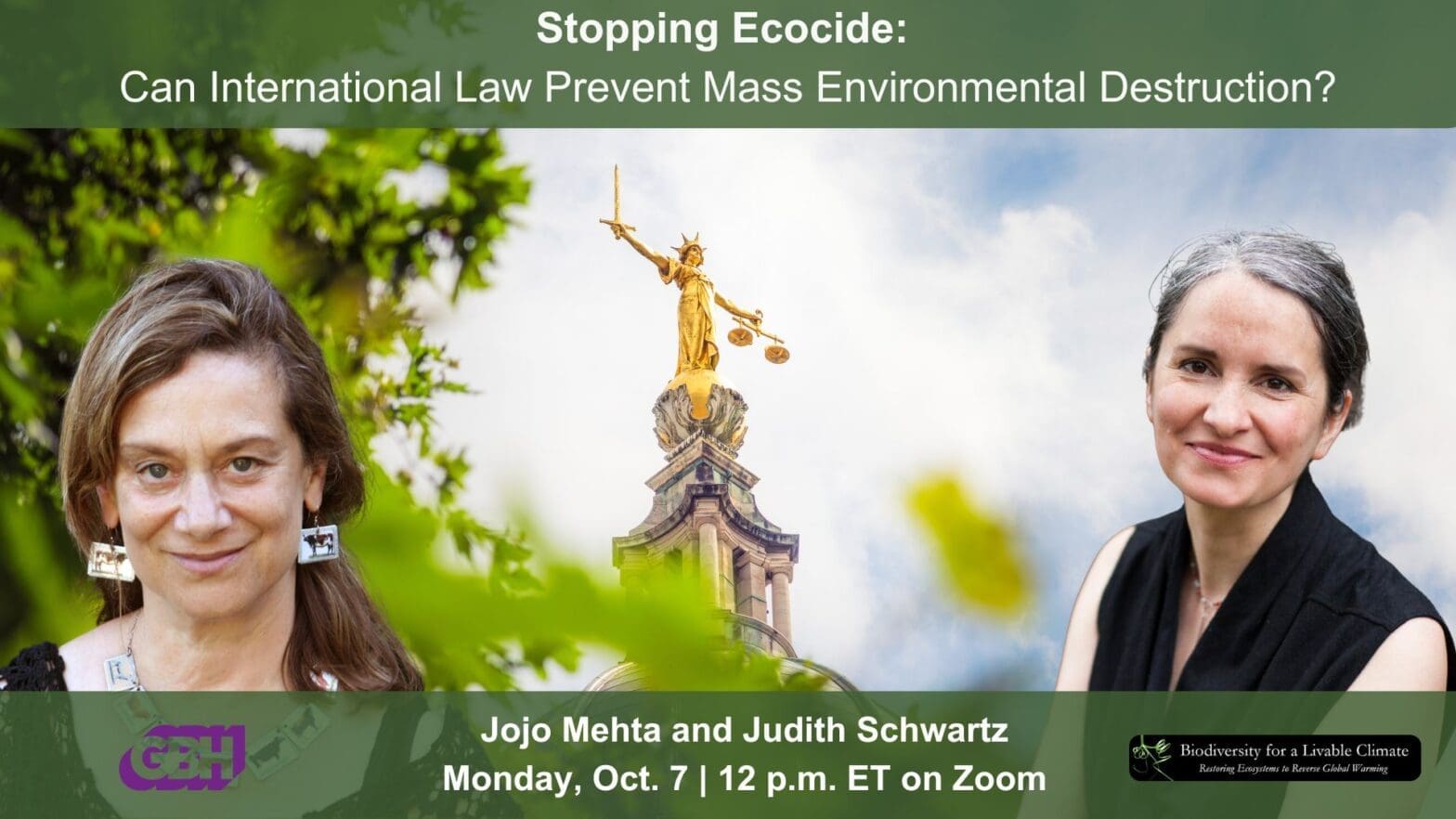Diverse ecosystems represent the greatest climate action technology at our disposal. But what recourse do we have when nature itself is under attack from the world’s biggest political and economic powers?
The movement to codify ecocide, that is, the intentional (or negligent) mass destruction of an ecosystem, as an international crime is gaining traction, particularly in Europe and in nations disproportionately impacted by the effects of climate change. As a crime and an area of practice, ecocide law is reserved for the very worst of the worst. Think oil spills, deforestation, pollution, and war.
But what are the promises and limits of international law in meting out justice on behalf of the environment?
Join Biodiversity for a Livable Climate as Jojo Mehta, co-founder and executive director of Stop Ecocide International, makes the case for global ecocide law in a conversation guided by environmental journalist Judtih Schwartz. They’ll cover what exactly ecocide is, how enforcement and legal frameworks can act as deterrents, where they’re gaining traction, and how legal teeth can help bolster other conservation and regeneration efforts.
Stop Ecocide International recently celebrated a number of milestones on the world stage; in September the island nations of Vanuatu, Fiji and Samoa officially petitioned the International Criminal Court to establish ecosystem destruction as a crime, and in February of this year Belgium became the first country in Europe to codify ecocide as an international crime. Several other countries on the continent are considering similar laws.
Jojo Mehta co-founded Stop Ecocide International in 2017, alongside the late barrister and legal pioneer Polly Higgins, to support the establishment of ecocide as a crime at the International Criminal Court. With representation and associate teams now in over 45 countries, Stop Ecocide International generates fertile collaborations at diplomatic and political levels, as well as across civil society with lawyers, academics, corporate influencers, indigenous and faith leaders, NGOs and grassroots campaigns.
Judith D. Schwartz is an author who tells stories to explore and illuminate scientific concepts and cultural nuance. She takes a clear-eyed look at global environmental, economic, and social challenges, and finds insights and solutions in natural systems. She writes for numerous publications, including The American Prospect, The Guardian, Discover, Scientific American, and YaleE360. Her latest book, “The Reindeer Chronicles”, is a global tour of earth repair, featuring stops in Norway, Spain, Hawai’i, New Mexico, and beyond.
This is the latest installment in our Life Saves the Planet lecture series

